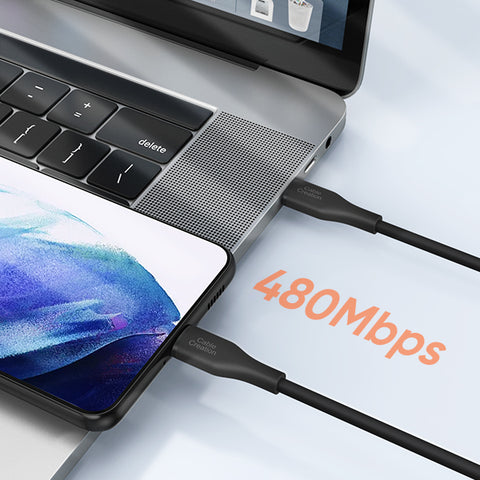How To Pick The Best USB-C Data Cable
If you're looking for a USB-C cable, you'll have to do some serious research. There are so many options that it can be tough to figure out which one to go with. This resource will show you how to choose the best USB-C data cable.

Types of USB C data cables
When it comes to choosing the best USB-C data cable, there are a few things to keep in mind. Here are four types of USB-C cables and their corresponding uses:
1. Type-A to Type-C Cable
This type of cable is used for transferring data between devices that use the standard USB connector, such as a laptop or an external hard drive.
2. Type-C to Type-C Cable
This type of cable is used for charging devices with the newer, reversible USB-C connector.
3. Type-A to MicroUSB Cable
This type of cable is used for connecting devices with a MicroUSB port, such as an Android phone or a digital camera.
4. Type-B to Type-A Cable
This type of cable is designed to connect your USB C enabled laptop or PC to USB 2.0 type B devices and peripherals, such as printers, scanners, printer switch hubs, digital piano, MIDI controller, electric keyboard, etc.
What to look for in a USB C cable
When shopping for a USB-C data cable, there are a few things to keep in mind. First, ensure the cable is reversible, as most devices require USB-C connectivity in both directions. Second, check the gauge of the cable—cables with a thicker gauge will provide more durability and better overall performance. Third, consider the length of the cable—cables that are too short may not be able to reach all the way to your device or charger. Finally, ensure the cable is compatible with your device and charging port—many USB-C cables are backward compatible with older ports, but not all.
What are the Benefits of a USB-C Cable?
• Faster data transfers – USB-C cables are capable of transferring data at up to 10Gbps, which is five times faster than traditional USB ports. This means you can transfer large files quickly and easily.
• No more tangled cords – A USB-C cable eliminates the need for messy cords, as the connector is built into the cable itself. This means you can keep your desk tidy and organized and avoid tripping over cords.
• Easy compatibility –USB-C cables are compatible with both newer laptops and older smartphones and tablets, so you can connect any device that has a USB port.
Conclusion
USB-C is the latest and greatest USB connector type, and it's quickly becoming the standard for high-end devices. That means that if you want to keep your devices up to date, you'll need to invest in a CableCreation USB-C data cable. CableCreation will help you choose the best one for your needs.


